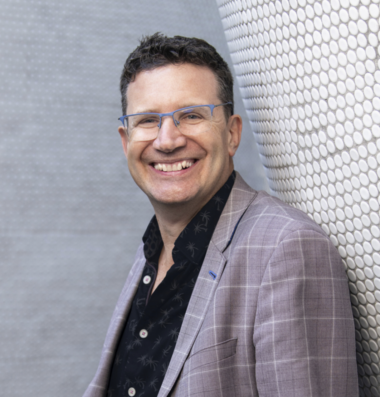
Dementia Australia is encouraging people living with dementia, their families and carers to begin discussions now about voting in the federal election on 3 May to ensure they have the support they need to participate.
“Voting is a fundamental part of our democracy, and it is essential that people living with dementia are supported to make an informed decision,” Professor Buchanan said.
For many people living with dementia, simple support measures can assist them to vote, such as help with arranging a postal vote or assistance in attending a voting centre.”
Professor Buchanan urged people living with dementia, their families and carers to start the conversation now and, where necessary, seek advice from a medical professional.
“It is important that people living with all forms of dementia, their families and carers start the conversation now and where appropriate include their doctor to discuss their capacity to vote,” Professor Buchanan said.
The Australian Electoral Commission (AEC) provides a range of resources, including Easy Read Guides, to help people living with dementia navigate the voting process.
If it is decided that someone is no longer capable of understanding the nature and significance of enrolment and voting, the appropriate form can be completed and submitted through the AEC to remove them from the electoral roll. The medical certificate on the form must be completed and signed by a registered medical practitioner.
Any changes to electoral details must be made before the electoral roll closes at 8pm (AEST) on Monday 7 April.
To further assist people living with dementia, their families and carers with information regarding support to vote for this election, Dementia Australia is hosting a series of information sessions. Click here for details on the sessions and how to join. Visit our website for more information on voting with dementia and a pre-recorded video of the information session.
If someone living with dementia requires assistance at a voting centre or when in contact with the AEC, please call the National Dementia Helpline on 1800 100 500. The National Dementia Helpline is a free call and operates 24 hours a day, seven days a week, 365 days a year.
-Ends-
Dementia Australia is the source of trusted information, education and services for the estimated 433,300 Australians living with dementia, and the more than 1.7 million people involved in their care. We advocate for positive change and support vital research. We are here to support people impacted by dementia, and to enable them to live as well as possible. No matter how you are impacted by dementia or who you are, we are here for you.
For support, please contact the National Dementia Helpline on 1800 100 500. An interpreter service is available. The National Dementia Helpline is funded by the Australian Government. People looking for information can also visit dementia.org.au
Media contacts: David Gear, Media and Communications Advisor, 0435 515 221, [email protected]
When talking or writing about dementia please refer to Dementia-Friendly Language Guidelines.
Note to Editors:
We request, where possible, details for the National Dementia Helpline 1800 100 500 appear alongside news stories about dementia, as these stories often prompt questions or concerns:
If this story has prompted any questions or concerns, please call the National Dementia Helpline 1800 100 500 (24 hours, 7 days a week) or visit dementia.org.au.


